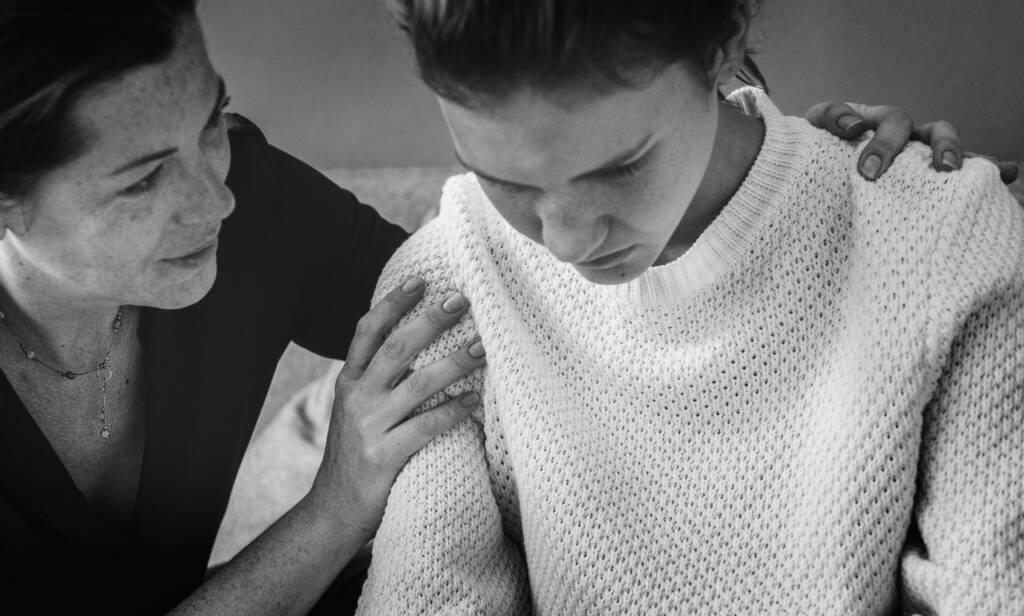Teenage depression is much more common than many people think. The changes to their hormones along with the pressures of everyday life are quite difficult for many teens to handle. If you think back to your own adolescence, I’m sure you can remember your own turmoil from that time period. And as the times have changed and become even faster paced this has only tended to increase this sense of turmoil in our adolescents today.
There are quite a few causes of teenage depression and here are some of the more common ones:
- School and homework pressures
- Peer Pressures that come in all shapes and sizes
- Getting bullied
- Athletic accomplishments or not
- Attempts to fit in with the popular crowd
- Economic difficulties at home
- Sexual orientation
- Dealing with abusive situations at home or in relationships
It’s difficult for most teens to open up about their problems or concerns to parents, peers or teachers. They end up feeling isolated and alone. They bottle everything up inside and do their best to not let anyone know there’s a problem. However, these feeling have to go somewhere so they come out in the form of teenage depression, which only causes the situation to escalate. And many of these kids are turning to negative practices such as alcohol or drugs as a way to self medicate, forget their problems and feel good at least for awhile It’s hard to put into words how depression feels, and people experience it differently but still Some of the signs you should be on the lookout for include constantly feeling irritable, sad or angry, isolating, losing or gaining weight, a doom and gloom attitude, over sleeping or no sleeping, no longer showing interest in hobbies, sports or other favorite activities or basically not enjoying life in general and most important You feel bad about yourself—worthless, guilty, or just “wrong” in some way . Now, one or two of these traits don’t necessarily indicate teenage depression. If a number of these characteristics are there in you than it’s time for a second look.
Seek help when needed
As many of students often say, “parents just don’t understand.” What an understatement!!! It may seem like there’s no way your parents will be able to help, especially if they are always nagging you or getting angry about your behavior. The truth is parents hate to see their kids hurting. They may feel frustrated because they don’t understand what is going on with you or know how to help. Many parents don’t know enough about depression to recognize it in their own kids. So, it may be up to you to educate them. Letting your parents know that you are feeling depressed will probably motivate them to get you the help you need. If your parents are abusive in any way, or if they have problems of their own that makes it difficult for them to take care of you, find another adult you trust (such as a relative, teacher or counselor). This person can either help you approach your parents, or direct you toward the support you need. No matter what, talk to someone, especially if you are having any thoughts of harming yourself or others. Asking for help is the bravest thing you can do, and the first step on your way to feeling better.


Tips for depress teens
Depression is not your fault, and you didn’t do anything to cause it. However, you do have some control over feeling better. Staying connected to friends and family, making healthy lifestyle decisions, and keeping stress under control can all have a hugely positive impact on your mood. • Try not to isolate yourself, be with people who make you happy • Keep your body healthy with good diet and exercise • Avoid alcohol and drugs, these means can never help you • Ask for help if you are stressed from any one you trust, better if it is an elder person or a counsellor. It’s important to remember that everyone struggles with feelings like these at one time or another. They don’t mean you’re weak, fundamentally flawed, or no good. Accepting your feelings and opening up about them with someone you trust will help you feel less alone. No matter what it feels like, people love and care about you, and if you can muster the courage to talk about your depression, it can—and will—be resolved. Some people think that talking about sad feelings will make them worse, but the opposite is almost always true. It is very helpful to share your worries with someone who will listen and care. Life is too short to let someone make you miserable. Remember, someone can only make you unhappy if you give them the power to do so.
Even the darkest clouds can’t hide the light forever. Hold on, brighter days are just beyond the struggle.
Dr. Nida Maqbool
Dr. Nida Maqbool at Care Corner offers specialized support for teenagers struggling with depression, providing a safe and empathetic space where they can express their feelings and concerns. She uses evidence-based therapies like Cognitive Behavioral Therapy (CBT) to help teens understand and manage their emotions, challenge negative thoughts, and develop healthier coping mechanisms.
With a compassionate and patient-centered approach, Dr. Maqbool works closely with teens and their families, aiming to foster resilience, self-esteem, and a positive outlook on life, guiding them toward a brighter, more balanced future.


